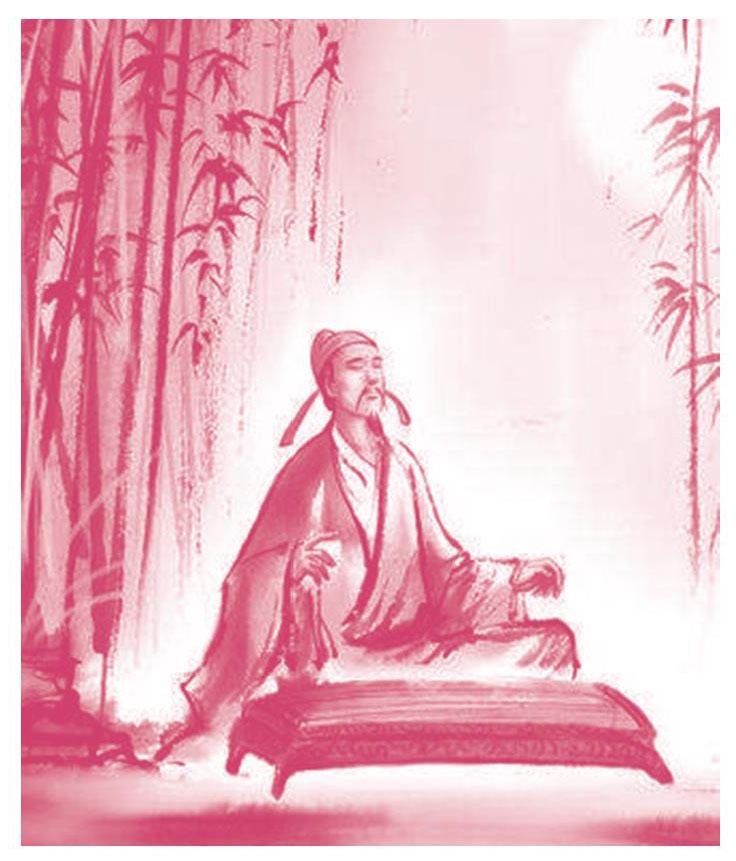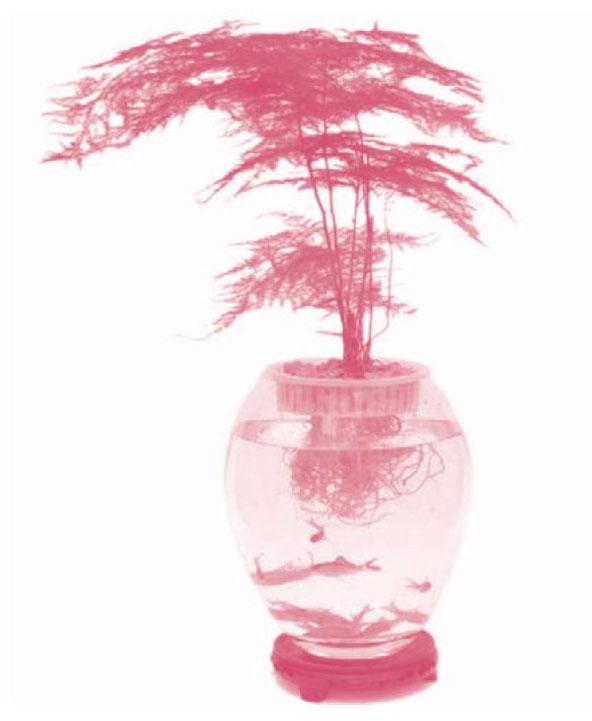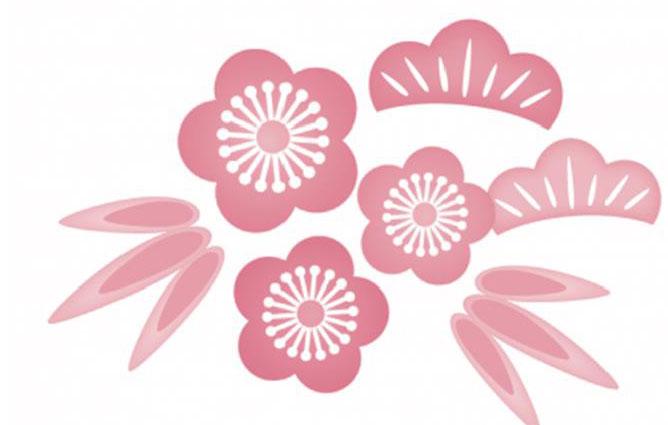文竹
2020-08-28周领顺
周领顺



盆景在于景,盆栽的松樹下摆放两个泥塑的小人,“松下问童子”之景便可呈现在眼前,只是难以掩饰人工雕琢的痕迹。但一盆简约的文竹,却能呈现别样的景致2,绝非一般的绿植所能比。
“文竹”与“竹”3相对,“文”即“柔和”,“文竹”取柔和之竹之意,俨然是拿竹子外形所作的比附。拉丁语将文竹称为Asparagus fern/setaceus,但还是中文的命名更富诗意,有文弱书生或古典美人般的联想。既作“文竹”,自然要和真正的竹子做一番比较。
置身竹下,或观竹叶冷日,或感竹影婆娑4,微风徐徐,窸窣之声满耳。凝视文竹,也能体味自己倚竹而立的遐思,若盆里文竹茂密,还能体会一把王维的“独坐幽篁里,弹琴复长啸”,并在其竹里馆里流连。文竹是竹子的缩微版,爱竹及文竹,反之亦然,也是爱竹人士断难将二者割舍之处。
无论是竹子还是文竹,莫不刚柔相济,兼武将军与文小姐于一身。刚,体现于骨节状的茎,一节一节,努力向上攀附,但整体又被柔美所笼罩,身修长而叶纤细5,婀娜备至。文竹更柔于竹,竹叶有宽有窄,从宽到窄作流线状,叶面有纹路直指叶尖6,而文竹的叶子通体宛若松针,努力“文”而难显变化的轮廓和纹路。难怪文竹也称“云片松”,松针般的叶子排列为片云,层次分明。郑板桥所作的竹子水墨画,除了在竹节上用力外,在叶子上也颇有讲究,宽窄由之,深浅由之,但面对文竹之叶,怕是难尽其长。文竹长到长如蔓7,似大姑娘梳理的及腰发辫,飘飘然,妩媚尽显。俯视文竹,犹如薄纱罩身;仰视文竹,犹如乱云飞渡,文竹有景在处处8。
竹比君子,文人雅士颇爱之,苏东坡有诗云,“不可居无竹”“无竹令人俗”。将文竹置于书桌,驰骋思维,修心养性9,可使案牍免于劳形。不善打理花草者,可将文竹养到至简,除了偶尔施水外,修剪全无。枝干或有枯黄,但枯黄的枝干既无腐败之味,又能昂首挺立10。绿黄杂处,层林浸染,叠翠流金,但有较大震动,也能见到缩微版风过松涛、金黄铺地的胜景。若是黛玉看见,说不定会作上一篇凄婉的《葬叶词》,与《葬花词》并为姊妹。文竹似竹也似松,岁寒三友松竹梅,文竹一身具二,能不动人!
文竹是心理显微镜,张弛的是想象力11。不像一盆普通的绿植,止于眼见之实,不缩不放,限制了想象的空间12。纵观文竹之优,我道是:小景天地阔,凝神观文竹13。 □
Penjing takes advantage of plants to design a landscape. Two clay figurines set under the little potted pine may present “I asked the boy beneath the pine tree” scene as written in the poem by Jia Dao except that the artifice and human skills are traceable with ease. However, a pot of unpruned wenzhu (asparagus fern/setaceus in Latin) is able to make a different view, which no other plants have the power to exhibit.
With a shared Chinese character zhu (bamboo) in their name though, wenzhu and zhu are simply compared in the way they look, and the former, implanted by the Chinese character wen with the indication of “gentleness”, thus means “bamboo of gentleness”. Comparably, its Chinese name, making it easily imaged as a gentle scholar or a woman of classic beauty, has the feel of being poetic. Since it is named as wenzhu, it is of logic to compare it with zhu.
One stands himself by the bamboo, watching its leaves shade him against the sun or bamboo shadows sway dancingly, breezes gentle and rustlings in his ears. Gazing at wenzhu, one may also lapse into the reverie that he is lost in when leaning on the bamboo. If the potted wenzhu happens to be thick, one is able to experience what the poet Wang Wei writes as “Alone in a remote bamboo forest, I play tunes on the strings and chant along” and would like to linger in his retreat among bamboos. Wenzhu is the miniature of zhu so that one will love both if he loves either of them and that its hard for zhu lovers to disconnect them.
